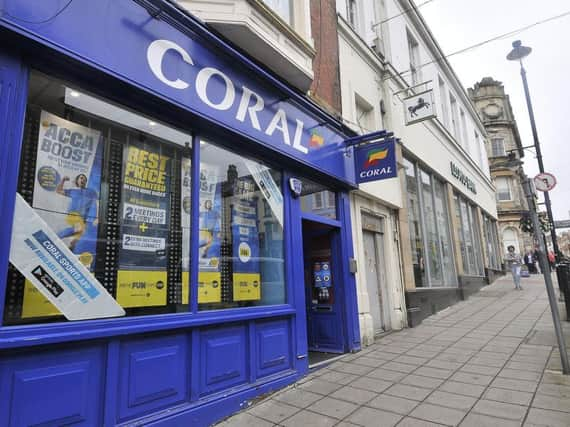Yorkshire hosts three of the Britain's top ten 'unhealthy' high streets


Research by the Royal Society for Public Health found that residents living in towns with lots of bookies and off-licences die younger than those with plenty of libraries and pharmacies.
Its ranking of 70 high streets found those living in the top 10 healthy areas lived an average of two-and-a-half years longer than those with the 10 unhealthiest high streets.
Advertisement
Hide AdAdvertisement
Hide AdBradford and Huddersfield were both among the 10 unhealthiest places, with Grimsby named as the unhealthiest town.
But York was among the 10 healthiest places, as an inquiry was launched by the council into whether the city centre can “weather the storm” facing the nation’s high streets.
Bradford South MP Judith Cummins said she was unsurprised by the findings and blamed the Government’s austerity cuts for hitting post-industrial cities and towns harder than other areas.
Advertisement
Hide AdAdvertisement
Hide AdThe Labour MP told The Yorkshire Post, which has been running the Love Your High Street Campaign: “High streets up and down the country face a similar array of challenges due to changes in society, but it is unsurprising that relatively less well-off areas have more ‘unhealthy’ businesses compared to leafier, more affluent places in the south.
“Our high streets are running on empty because they been subject to a harsh Government austerity programme for eight years. Investment has been sucked from towns and cities and those in the north, particularly those still dealing with deindustrialisation, have been hit disproportionately.
“The local authorities that would be well-placed to make changes have faced severe funding cuts from the Government.”
Advertisement
Hide AdAdvertisement
Hide AdTory MP Kevin Hollinrake, whose Thirsk and Malton constituency has seen trailblazing moves on this issue, meanwhile insisted that “most of the changes to our high streets and town centres are being driven by consumer behaviour”.
He welcomed Chancellor Philip Hammond’s moves in the Budget to give 500,000 small retailers a third off their business rates and a £650m fund to improve transport for struggling town centres and to turn empty shops into homes and offices.
He added: “Local authorities and private landlords can also help by lowering car parking charges, desisting from giving permissions for more retail space in out of town shopping centres and helping town centre and high street businesses to work together under a common identity or local offering. An excellent example of this is Malton which has successfully built an identity as the food capital of Yorkshire.”
Kieron Boyle - chief executive of Guy’s and St Thomas’ Charity, which works to improve health in London, said the report showed how factors beyond health and social care influence peoples wellbeing.
Advertisement
Hide AdAdvertisement
Hide AdFast food and vape stores
The research found that 4,000 new fast food outlets had opened across the UK in the past five years - predominantly in poorer areas.
Deprived areas now have five times more fast food shops than wealthy neighbourhoods, the RSPH said.
It showed that vape shops have doubled to 2,000 in the last three years, while the number of empty shops on the high street has increased from below 7 per cent in 2007 to 11 per cent in 2017.
Shirley Cramer, chief executive of the RSPH, said the Chancellor’s Budget did “not go far enough” for high streets as councils are unable to reshape their high streets due to ongoing funding cuts.